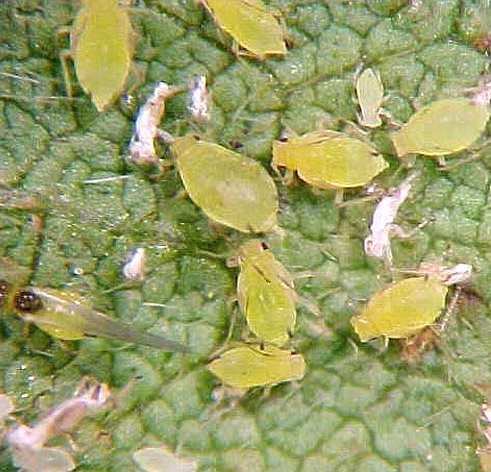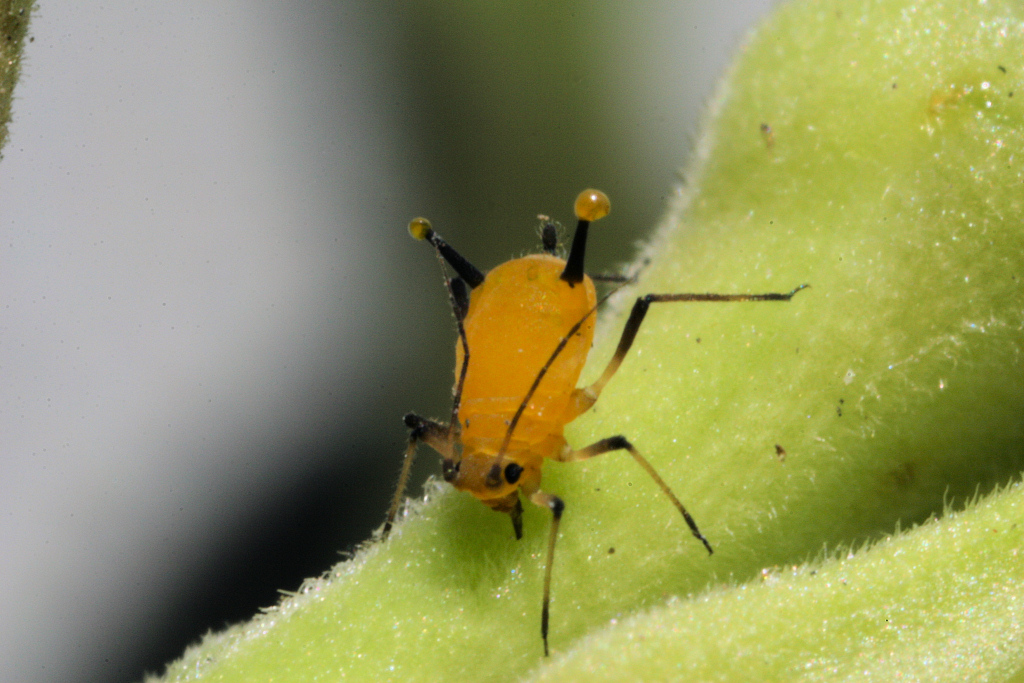Aphids

Aphids can be found on the under side of the leaves or along the stems of the affected plant. Aphids do damage to the plant by using a small tube-like mouth to puncture the the surface of the leaf and/or stem and suck out the plant's juices. Affected plants may begin to whither and have curled, yellow leaves. Once the plant's juices have been processed by the Aphid, the insect excretes a sticky "honeydew" substance. This "honeydew" substance may attract ants to the garden while also providing a breeding ground for sooty mold. The sooty mold will cause the stems and leaves of the plant to turn black. Also, because of how theses insects feed, they are notorious for spreading more plant diseases than almost any other type of insect.
Because these insects can breed rapidly, especially without some of the harsh conditions of an outdoor garden, it is important to monitor your garden regularly. To prevent these insects, air filtration systems can be helpful along with weekly neem oil treatments. If aphids are found in small quantities it may be useful to simply prune the affected areas from the plant and use a pressured burst of water to knock the aphids off of the plant. You may also consider a mild soap and water solution to wash off the leaves, if the infestation is minor.
To eliminate more intense aphid populations, there are a number of chemical and non-chemical options. One of the first ways to control an aphid population is through the use of parasitic or predatory insects. Such insects include lady bugs, parasitic wasps or lacwigs. In terms of sprays, Aphids can be killed using by using neem oil, insecticidal soaps, pyrethrum. Home-made or organic remedies often include cinnamon oil, garlic oil and cloves.

